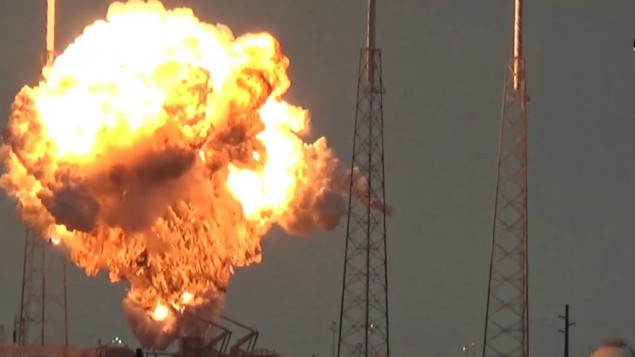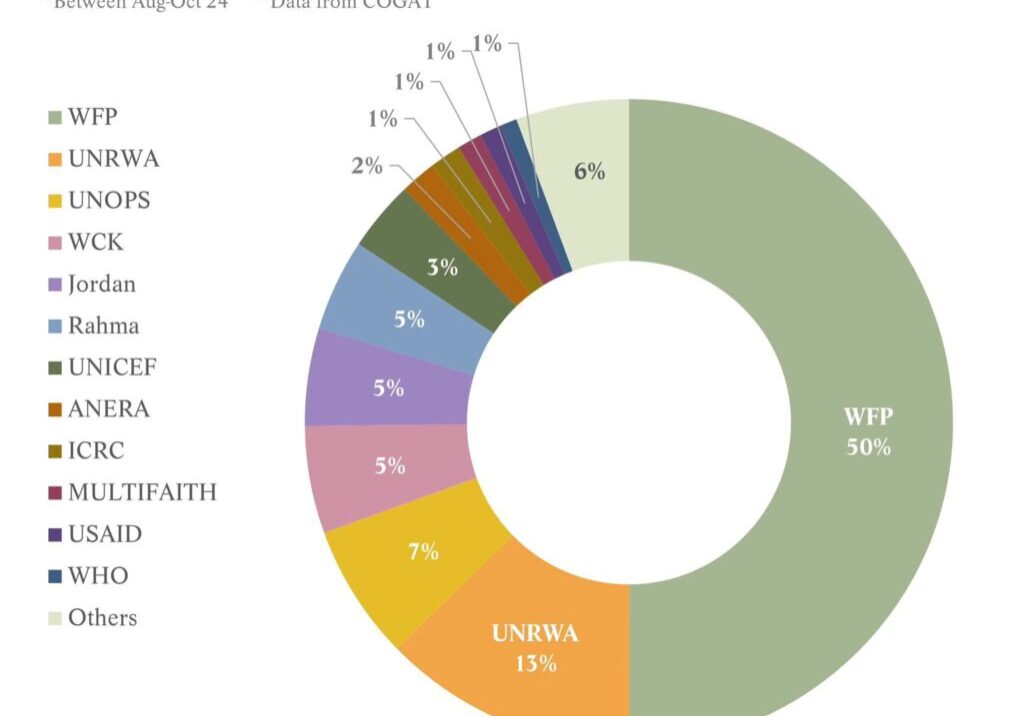FRESH AIR
UPDATES
Explosion rocks Israeli satellite industry
Sep 6, 2016 | Rachel Kaye

Israel’s satellite industry is in crisis after a SpaceX rocket carrying an advanced Israeli communications satellite exploded on the launchpad at Cape Canaveral, Florida last Thursday 1 September. The accident (which occurred as SpaceX was fuelling its rocket for a prelaunch test) and the subsequent loss of the Israeli-built satellite has been described as a “crushing blow” to Israel Aerospace Industries (IAI), from which it is uncertain it can recover.
Crown jewel of satellites
The destroyed Amos-6 satellite – developed for the Israeli company Space Communications Ltd (Spacecom) by IAI – was the largest and most sophisticated communications satellite built in Israel’s history; a piece of technology worth between US$200 – $300 million and considered the ‘crown jewel’ of Israeli satellites. Expected to be operational for 16 years, the spacecraft would have provided services to Israeli telecommunications networks (replacing the old Amos-2 satellite) as well as to the company Facebook – who had leased the satellite’s broadband services to expand internet access across sub-Saharan Africa.
This represents a significant setback for Israel’s space program: according to the head of the Israel Space Agency, Yitzchak Ben-Yisrael, if Spacecom chooses to order a new satellite (which is not assured), it would take “between two to three years to fill the gap” left by the Amos-6. A successful launch, however, would have provided Spacecom with US$100 million in earnings from Facebook and US$164 million from the Israeli government. Spacecom has since indicated that it will receive approximately US$205 million in damages from IAI, the satellite’s developers, and is looking to claim either US$50 million or a free flight from SpaceX as compensation for the satellite’s destruction.
The explosion has already impacted Spacecom’s stock – the Israeli business newspaper Globes reported that the company’s share price declined by close to 9% immediately following the accident and has tumbled another 34% since.
What is likely of key concern to Spacecom now is whether its upcoming merger with China’s Xinwei Technology Group, a deal reportedly worth US$285 million, will go ahead – the sale of Spacecom was conditional on the Amos-6 spacecraft being successfully launched and commencing service. Spacecom’s Gil Lotan has indicated that it is too early to know the ramifications, both for the deal and for the future of the company. Indeed, this is not the first instance of bad satellite news for Spacecom: back in November 2015, the company announced that it had lost communication with its Amos-5 satellite only four years after its launch.
Israeli satellite industry
Despite its small size, Israel is one of ten countries worldwide with the capacity to produce, launch and operate satellites in space. Its first satellite – the Ofeq-1 – was launched all the way back in September 1988 and 13 have been launched since. As Peter B. de Selding of SpaceNews notes: “on a per-capita basis, Israel may have the world’s most developed space program.”
Selding goes on to explain:
“With a population no greater than New York City’s, Israel is home to at least two publicly traded pure-play space companies – telecommunications satellite fleet operator Spacecom and satellite broadband ground hardware provider Gilat Satellite Networks. Israel’s domestic rocket, the Shavit, is good enough to launch Israeli military reconnaissance satellites – both radar and optical – developed by Israeli industry. Israel also boasts a satellite prime contractor, Israel Aerospace Industries, that builds telecommunications and observation satellites and, through its subsidiary Imagesat, commercializes the home-grown Eros optical imaging satellites on the global market.”
Where to from here?
In response to Thursday’s explosion, Ofir Akunis – Israel’s Science, Technology and Space Minister – called the heads of Israel’s space industry into an emergency meeting. Ofer Shelah, the chairman of a Knesset subcommittee for Intelligence and Secret Services also convened his panel to discuss the explosion’s ramifications, noting that the matter was “critical” and it was necessary for the government to commit “the required national resources” to attend to it.
Whilst Israel’s space agency has declared that it would “continue to support the space industries in Israel with the goal of maintaining them at the forefront of technology and preserving Israel’s critical independence, particularly in the area of satellite communication”, Shelah has indicated that this accident has placed the Israeli space industry in a very serious position. Indeed, it appears, that an industry crisis was developing regardless of the success or failure of the Amos-6.
Back in April of this year, Joseph Weiss, the President and CEO of IAI had warned of an “ongoing crisis in the Israeli space industry” due to the lack of government investment. At present, Israel’s space program receives 300 million shekels (US$80 million) in government funding each year – a modest amount when compared to the space budget of other space-faring nations. The Jerusalem Post has reported that the government was planning to reduce this contribution, likely resulting in the dismissal of between 200-250 space experts from IAI.
There are thus fears that Israel lacks a long-term government plan for the satellite industry. Jerusalem has refused to fund the development of an Amos-7 satellite, which would ensure the continuance of an independent communications satellite capability into the future. Indeed, while other nations such as the US build five to eight satellites per year, Israel only produces one satellite every three to four years – with even less government funding, there will be no way to improve its competitive advantage.
Opher Doron, head of IAI’s MBT Space Division, speaking at the Ilan Ramon International Space Conference in February of this year issued his own warning:
“Israel has no space policy, and we are moving backwards.”
Tags: China

















